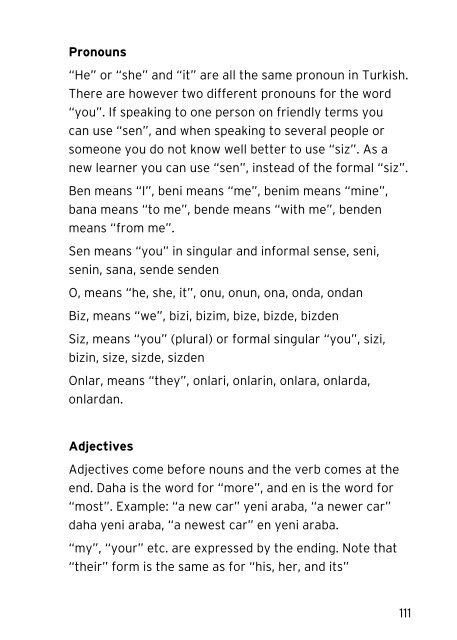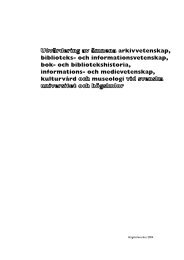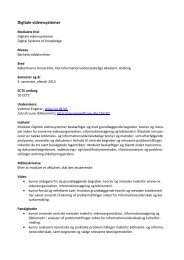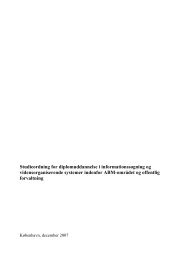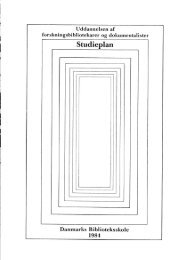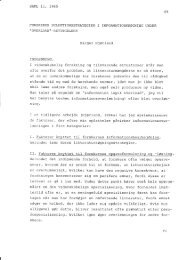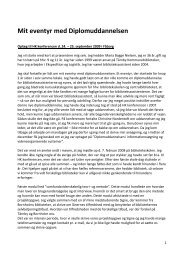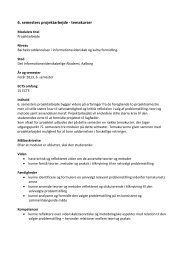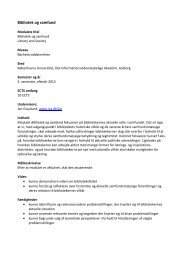Handbook - AB Ofisi - Hacettepe Ãniversitesi
Handbook - AB Ofisi - Hacettepe Ãniversitesi
Handbook - AB Ofisi - Hacettepe Ãniversitesi
You also want an ePaper? Increase the reach of your titles
YUMPU automatically turns print PDFs into web optimized ePapers that Google loves.
Pronouns<br />
“He” or “she” and “it” are all the same pronoun in Turkish.<br />
There are however two different pronouns for the word<br />
“you”. If speaking to one person on friendly terms you<br />
can use “sen”, and when speaking to several people or<br />
someone you do not know well better to use “siz”. As a<br />
new learner you can use “sen”, instead of the formal “siz”.<br />
Ben means “I”, beni means “me”, benim means “mine”,<br />
bana means “to me”, bende means “with me”, benden<br />
means “from me”.<br />
Sen means “you” in singular and informal sense, seni,<br />
senin, sana, sende senden<br />
O, means “he, she, it”, onu, onun, ona, onda, ondan<br />
Biz, means “we”, bizi, bizim, bize, bizde, bizden<br />
Siz, means “you” (plural) or formal singular “you”, sizi,<br />
bizin, size, sizde, sizden<br />
Onlar, means “they”, onlari, onlarin, onlara, onlarda,<br />
onlardan.<br />
Adjectives<br />
Adjectives come before nouns and the verb comes at the<br />
end. Daha is the word for “more”, and en is the word for<br />
“most”. Example: “a new car” yeni araba, “a newer car”<br />
daha yeni araba, “a newest car” en yeni araba.<br />
“my”, “your” etc. are expressed by the ending. Note that<br />
“their” form is the same as for “his, her, and its”<br />
111


